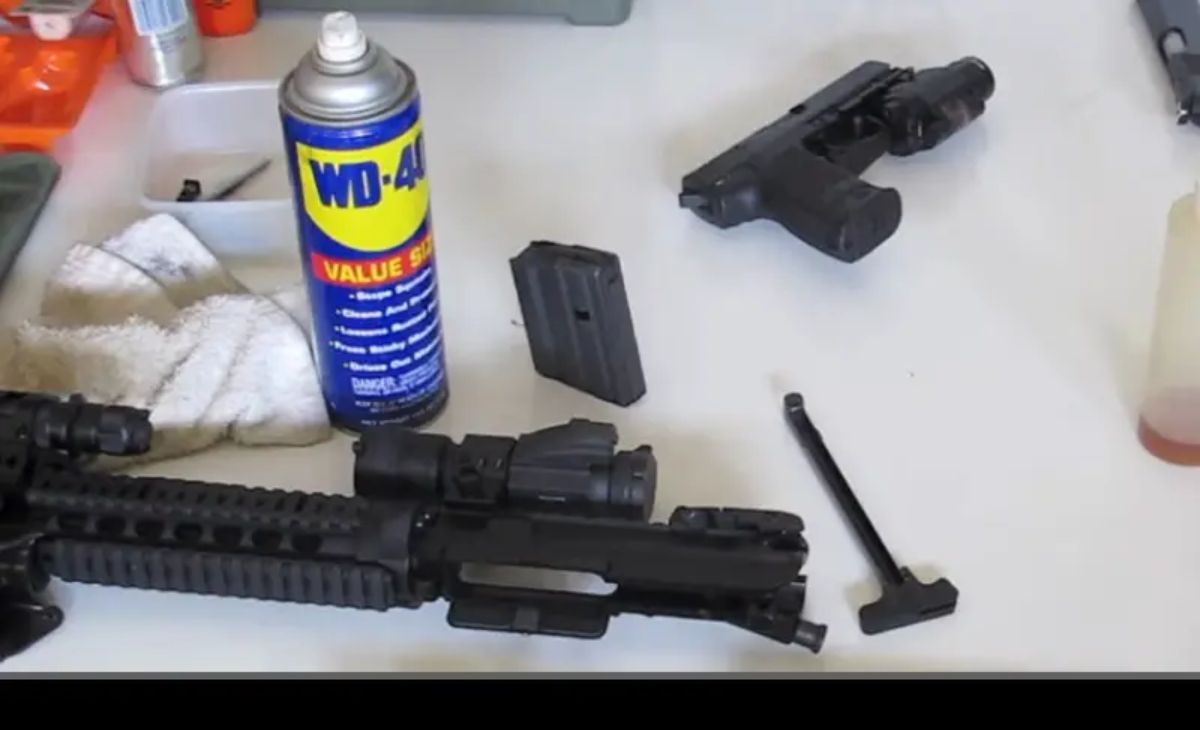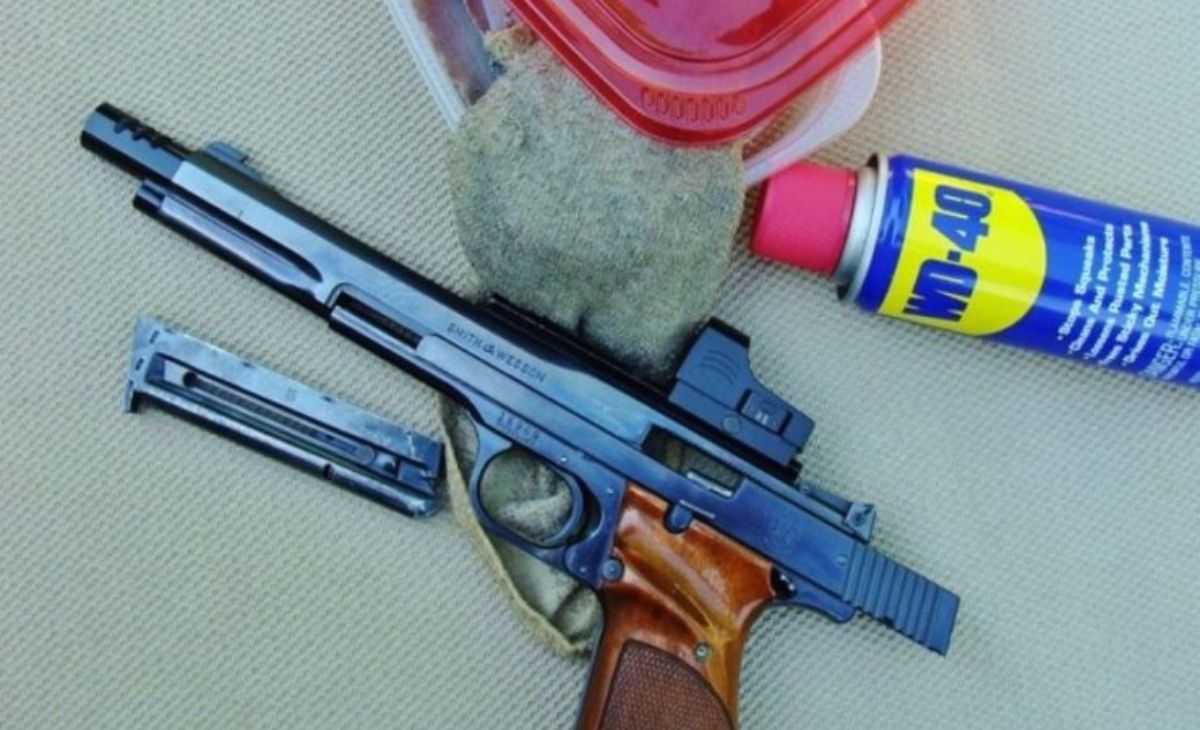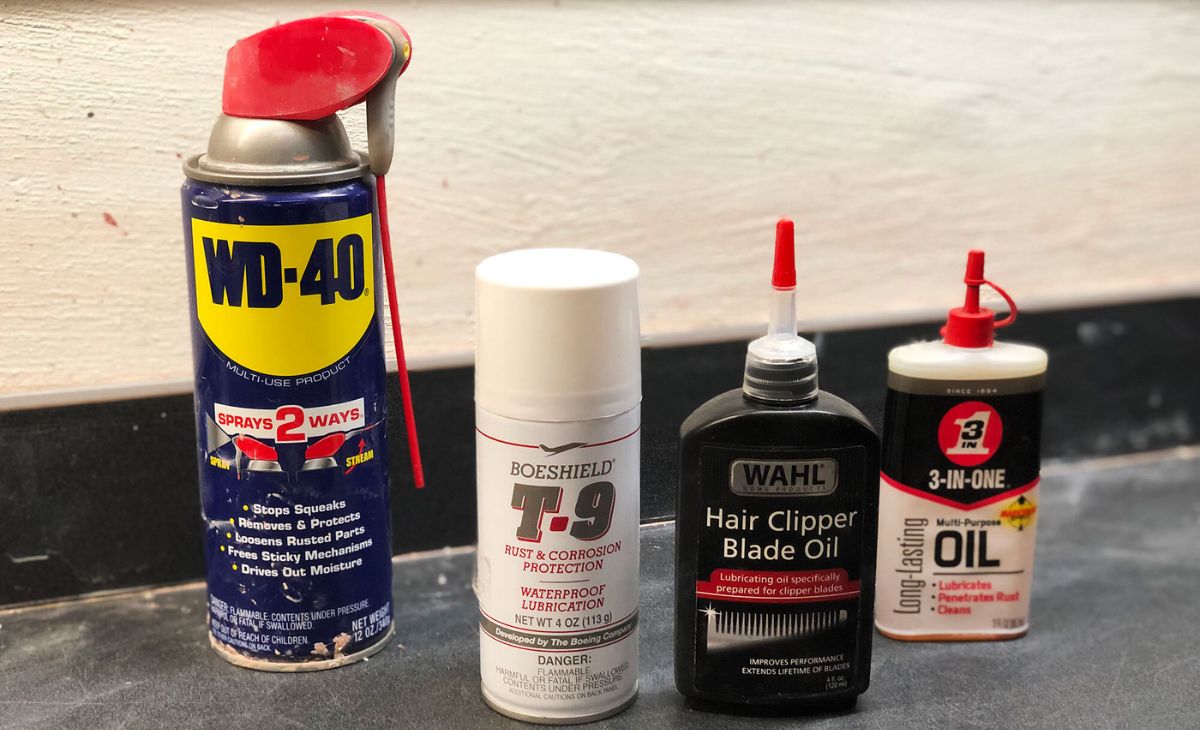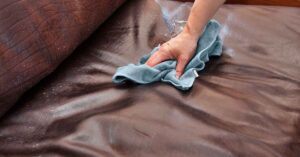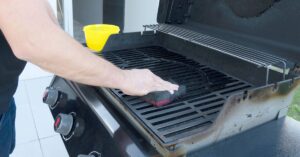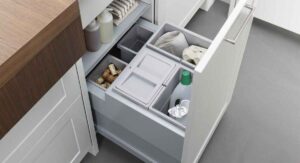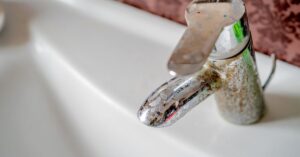In the realm of firearm maintenance, the question of whether cleaning guns with WD-40 is a safe and effective practice has sparked a contentious debate. While some argue for its convenience and versatility, others caution against potential risks. This article delves into the intricacies of this debate, exploring the alternatives to WD-40 and providing expert recommendations for safe and effective gun cleaning practices, including the essential insights on the first step in cleaning a firearm. By examining the proper lubrication and common mistakes to avoid, readers will gain valuable insights to make informed decisions in maintaining their firearms.
- Proponents argue that WD-40 is versatile and can effectively remove dirt, debris, and moisture from firearms.
- Critics argue that WD-40 is not specifically designed for gun cleaning and may not provide adequate protection or lubrication.
- WD-40 contains petroleum distillates that can potentially damage certain firearm components.
- Using specialized gun cleaning solvents and lubricants can provide better results and protect the longevity of firearms.
The Debate Over WD-40 for Gun Cleaning
The debate over the use of WD-40 for gun cleaning continues to generate discussions among firearms enthusiasts and experts alike. On one hand, proponents argue that WD-40 is a versatile lubricant that can effectively remove dirt, debris, and moisture from firearms. They claim that its corrosion-resistant properties make it suitable for protecting gun surfaces. On the other hand, critics argue that WD-40 is not specifically designed for gun cleaning and may not provide adequate protection or lubrication for firearms.
They suggest that using dedicated gun cleaning products, such as solvents and oils, is a safer and more effective approach. Additionally, some experts caution against using WD-40 on firearms with certain finishes, as it may cause damage or discoloration. Ultimately, the debate centers around the trade-off between convenience and optimal gun maintenance.
Potential Risks of Using WD-40 on Firearms
Using WD-40 on firearms may pose potential risks that should be carefully considered by gun owners and enthusiasts. While WD-40 is a versatile and widely used lubricant, it may not be the best choice for cleaning firearms. One of the main concerns is the presence of petroleum distillates in WD-40, which can potentially damage certain firearm components. These distillates can cause the degradation of certain plastics, rubber, and synthetic materials commonly found in firearms.
Additionally, WD-40 is not specifically designed for firearms and may not provide adequate protection against corrosion and wear. Furthermore, WD-40 has a relatively low flash point, making it potentially hazardous when used near hot firearms or in poorly ventilated areas. Gun owners and enthusiasts should consider using specialized gun cleaning solvents and lubricants that are specifically formulated for firearms to ensure proper maintenance and longevity of their firearms.
Alternatives to WD-40 for Gun Maintenance
Consider utilizing specialized gun cleaning solvents and lubricants as alternatives to WD-40 for maintaining firearms. While WD-40 can be effective in certain situations, using products specifically designed for gun maintenance can provide better results and protect the longevity of your firearms. Here are four alternatives worth considering:
- Ballistol: A versatile and highly regarded cleaner, lubricant, and protectant that is safe to use on all firearm surfaces.
- Hoppe’s No. 9: A classic solvent known for its ability to effectively remove carbon, lead, and copper fouling from gun barrels.
- Slip 2000 EWL: A synthetic lubricant that provides excellent protection against friction and wear, ensuring smooth operation of your firearms.
- M-Pro 7 LPX: A long-lasting, low-odor lubricant that is designed to work in extreme conditions and provide superior corrosion protection.
Safe and Effective Cleaning Practices for Guns
To ensure the safety and effectiveness of gun cleaning, proper techniques and tools should be employed. Cleaning a gun is a crucial part of its maintenance and should not be taken lightly. Firstly, it is important to disassemble the firearm according to the manufacturer’s instructions, making sure to remove all ammunition and ensuring the gun is unloaded. Next, a cleaning rod with a bore brush and patches should be used to remove any debris or fouling from the barrel.
Solvent should be applied to the brush or patch to aid in the cleaning process. Additionally, brushes and picks can be used to clean hard-to-reach areas such as the bolt or slide. After cleaning, a light coat of lubricant should be applied to ensure smooth operation. Finally, the gun should be reassembled and function-tested before being stored. By following these safe and effective cleaning practices, gun owners can ensure the longevity and reliability of their firearms.
Understanding the Proper Lubrication for Firearms
Applying appropriate lubrication is essential for ensuring the smooth operation and longevity of firearms. Proper lubrication not only reduces friction between moving parts but also helps to prevent wear and corrosion. Here are some key considerations when it comes to understanding the proper lubrication for firearms:
- Choose a high-quality gun oil or grease specifically designed for firearms.
- Apply lubrication to key areas such as slide rails, trigger mechanisms, and bolt carriers.
- Use the right amount of lubricant – too much can attract dirt and debris, while too little may lead to increased friction and wear.
- Regularly clean and maintain your firearms to remove any excess lubrication and prevent buildup.
Common Mistakes to Avoid When Cleaning Guns
One common mistake to avoid when cleaning guns is using WD-40 as a cleaning solvent. While WD-40 is a popular multi-purpose lubricant, it is not designed specifically for firearms cleaning. Firearms require specialized solvents and lubricants to effectively remove fouling and protect against corrosion. Using WD-40 as a cleaning solvent can leave behind residue that attracts dirt and can potentially interfere with the proper functioning of the firearm.
It is essential to use a dedicated gun cleaning solvent that is designed to dissolve carbon, lead, and copper deposits without damaging the firearm’s components. Additionally, using WD-40 as a cleaning solvent may not provide the necessary lubrication for the firearm’s moving parts. To ensure proper maintenance and longevity of your firearm, it is crucial to use appropriate cleaning solvents and lubricants specifically formulated for firearms.
Expert Recommendations for Gun Cleaning Products
Gun cleaning experts recommend using specialized solvents and lubricants designed specifically for firearms maintenance. These products are formulated to effectively remove carbon, dirt, and grime, while providing optimal lubrication to ensure smooth operation and longevity of the firearm. Here are four top-recommended gun cleaning products:
- Hoppe’s No. 9 Gun Bore Cleaner: A classic solvent known for its ability to dissolve powder residue, lead, and copper fouling.
- Break-Free CLP: A versatile cleaner, lubricant, and protectant that offers excellent corrosion resistance and reduces friction.
- M-Pro7 LPX: A low-odor, synthetic lubricant that provides long-lasting protection against wear and tear, while preventing the buildup of contaminants.
- Slip 2000 EWL: A high-performance lubricant that reduces friction, provides superior corrosion protection, and withstands extreme temperatures.
Final Thoughts on Cleaning Guns With WD-40
After considering the potential risks and drawbacks, it is evident that using WD-40 for gun cleaning may not be the most advisable choice. While WD-40 can provide temporary lubrication and rust prevention, it is not specifically designed for firearms maintenance and can potentially cause damage to certain gun parts over time. Additionally, WD-40’s fast-evaporating formula may not provide long-lasting protection against corrosion, leaving the gun susceptible to rust.
To further highlight the concerns associated with using WD-40 for gun cleaning, let’s examine a comparison table that outlines the drawbacks of this practice:
| Drawbacks of Cleaning Guns with WD-40 | Alternatives |
|---|---|
| Potential damage to gun parts | Dedicated gun cleaning solvents |
| Insufficient long-term rust prevention | Gun oils specifically formulated for firearms |
| Limited cleaning effectiveness | Bore brushes, patches, and cleaning rods |
| Strong odor | Odorless or lightly scented solvents |
| Lack of precision in application | Applicator brushes, swabs, and patches |
Considering the availability of dedicated gun cleaning products that are designed for the specific needs of firearms, it is recommended to choose alternatives to WD-40 for optimal gun maintenance and longevity.
FAQ,s
Can WD-40 Be Used as a Lubricant for Firearms?
WD-40 is not recommended as a lubricant for firearms due to its low viscosity and lack of long-lasting protection. It may attract dirt and debris, potentially leading to malfunctions and decreased performance.
Is It Necessary to Disassemble the Firearm Before Cleaning With Wd-40?
It is advisable to disassemble the firearm before cleaning it with WD-40 to ensure thorough cleaning and prevent any potential damage to the gun’s internal components. This practice promotes safety and effectiveness in firearm maintenance.
Can Using WD-40 on Guns Cause Damage to the Finish?
Using WD-40 on guns can potentially cause damage to the finish. WD-40 is primarily a solvent and not designed for gun cleaning. It is recommended to use products specifically formulated for firearms to ensure proper cleaning and maintenance.
How Often Should Guns Be Cleaned With Wd-40?
Regular cleaning of firearms with WD-40 is essential to maintain their performance and longevity. However, the frequency of cleaning with WD-40 depends on factors such as usage, environmental conditions, and the type of firearm being used.
Are There Any Specific Types of Guns That Should Not Be Cleaned With Wd-40?
There are certain types of guns that should not be cleaned with WD-40 due to potential damage to the firearm. It is important to consult the manufacturer’s recommendations and use appropriate cleaning products for each specific firearm.
Conclusion
In conclusion, using WD-40 for gun cleaning is not considered a safe and effective practice. The potential risks of using WD-40 on firearms, such as attracting dirt and debris and causing damage to gun components, outweigh any benefits it may provide. It is recommended to use specialized gun cleaning products that are designed for the task. For example, a case study found that using a gun-specific solvent and lubricant resulted in improved firearm performance and longevity compared to using WD-40.
